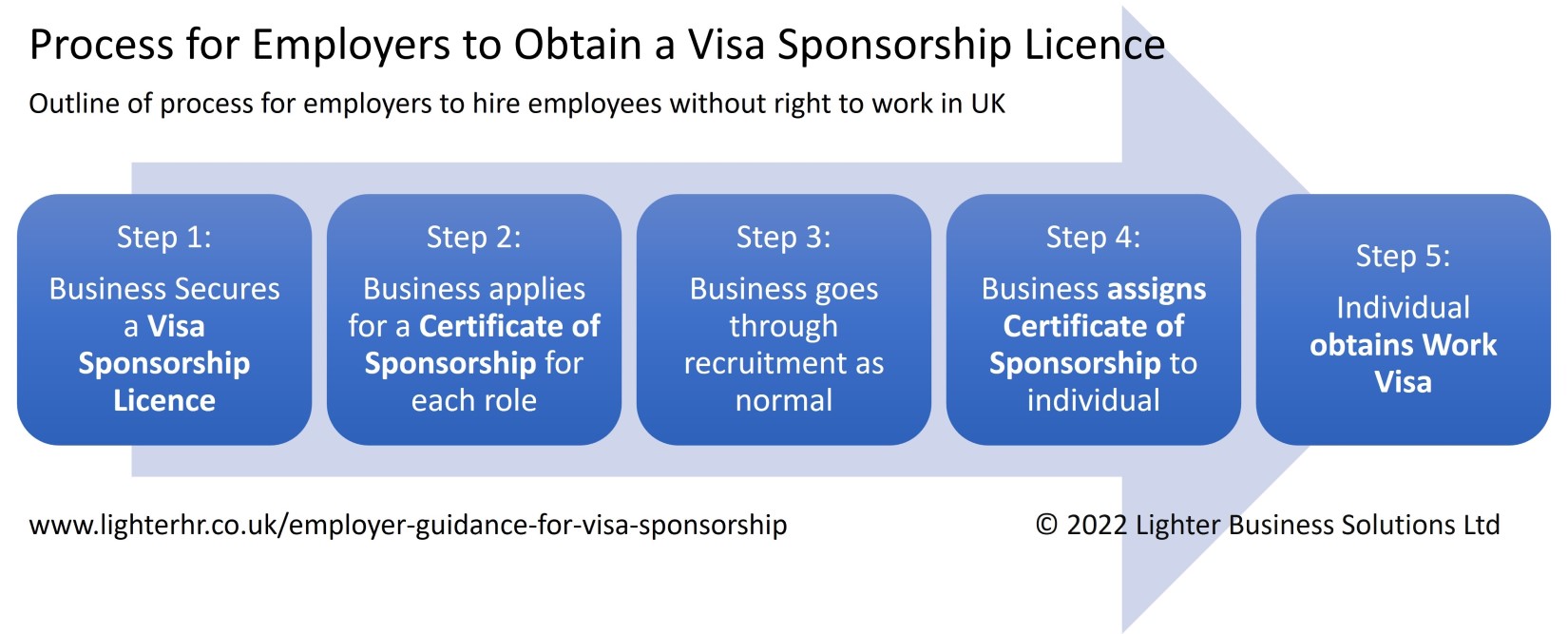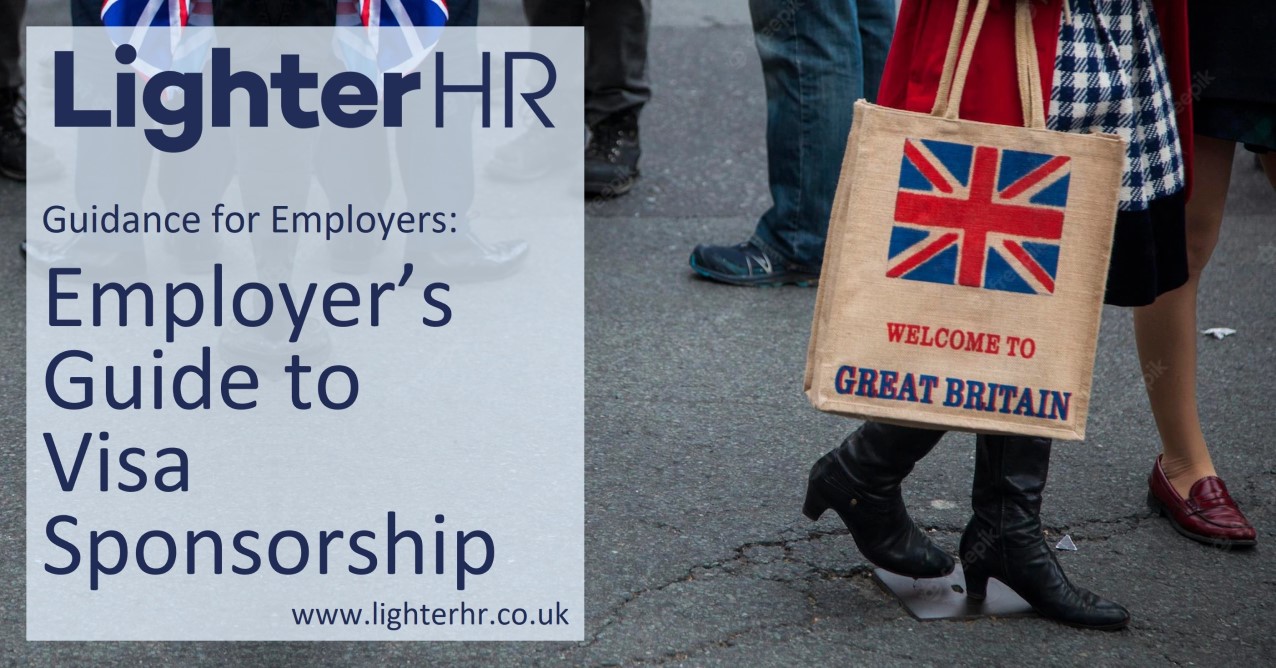Over the last few years, we have seen a sharp increase from businesses who are looking to offer a visa sponsorship to workers who do not have the right to work in the UK. This increase is due to the significant skills shortages that some sectors are facing.
The skills shortages have everything to do with the perfect storm that has been Brexit and the pandemic. Brexit led to a large number of workers losing their right to work in the UK. Then the pandemic lead to a number of workers returning to their home countries to be close to loved ones.
We have helped dozens of businesses navigate the process of obtaining a sponsorship licence so that they can offer visa sponsorship. In this post, we’ll outline some of the key areas that you should be aware of if this is something that your business is considering doing.
Please note: we are not immigration specialists and nothing in this post should be construed as being immigration advice.
Time to read our post: 5 minutes
The questions answered in this post are:
- What Is a Visa Sponsorship Licence?
- Who Requires a Sponsorship Licence?
- What Is the Process for an Employer Getting a Visa Sponsorship Licence?
- Is It Hard for an Employer to Become a Sponsor?
- How Do I Apply for My Business to Become a Sponsor?
- What Are the Costs Related to an Employer Becoming a Sponsor?
- How Long Does the Visa Sponsorship Process Take?
- What Happens After an Employer Obtains a Sponsorship Licence?
1. What Is a Visa Sponsorship Licence?
A visa sponsorship licence is a licence that allows you, the employer, to employ a worker who otherwise does not have the right to work in the UK.
Whether the prospective employee is already based in the UK and being sponsored by another company, or they are currently based abroad and planning to move to the UK, with a sponsorship licence you’ll have the option to offer visa sponsorship to these workers. This will enable them to become employees of your organisation.
2. Who Requires a Sponsorship Licence?
Any business that wishes to offer visa sponsorship to workers who otherwise do not have the right to work in the UK requires a sponsorship licence.
3. What Is the Process for an Employer Getting a Visa Sponsorship Licence?

The overall process for an employer obtaining a visa sponsorship licence is:
- The business secures a visa sponsorship licence
- The business applies for a Certificate of Sponsorship (“CoS”) for the roles that they feel they will fill with workers who do not have the right to work in the UK.
- The business then undertakes their normal recruitment process. If they find that the best person for the job requires sponsoring, they are able to offer visa sponsorship.
- The business assign the individual a CoS and the individual themselves needs to then obtain a Work Visa to allow them to travel to/remain in the UK and take up the role.
4. Is It Hard for an Employer to Become a Sponsor?
It is, and it isn’t!
The first step is to ensure that you understand the type of roles that allow for sponsorship. You then assess whether these roles are aligned to your requirements.
You can find a list of the types of roles that are suitable for sponsorship on the government website. If you conclude that the roles that you are looking to fill are suitable roles, then you can move to look at whether your organisation is likely to be able to secure a sponsorship licence.
If you decide to proceed, take a look to make sure that your business meets the requirements of companies who can obtain a licence. The criteria are not overly complicated.
You will not be able to secure a sponsorship licence if:
- any of your directors have criminal convictions for immigration offences or certain other crimes such as fraud or money laundering.
- you have had a licence revoked in the previous 12 months.
Beyond that, you need to ensure that you will be able to support your application with all of the necessary documentation as per the list of what is required on the government site.
If you meet the requirements and have the documentation that you’ll need, you can go ahead and start the process. You can navigate the process yourself. Alternatively, you can engage with an immigration agent or other experienced individual who can guide you through the process.
5. How Do I Apply for My Business to Become a Sponsor?
This, in essence, is the easier part.
Once you’ve gathered all the documentation that UK Visas and Immigration needs from you, applying for the sponsorship license on the government website does not take too long.
However, the tricky part is knowing what to provide, when to provide it, and who to provide it to.
From experience, there are a few issues that could hinder your application, or at least delay it. Our experience in dealing with sponsorship licences gives us the knowledge that you need to try and prevent this from happening.
6. What Are the Costs Related to an Employer Becoming a Sponsor?
Fees for the Sponsorship Licence
The first fees relate to obtaining the sponsorship licence itself.
The fee that you’ll pay is based on the size of the organisation. You can find the current fees for visa sponsorship on the government website.
Currently, the fees range from £536 for small companies and charities, through to £1,476 for larger companies.
However, this is the tip of the iceberg when it comes to costs for employing overseas workers.
Other Fees for the Employer
Besides the fees that you are required to pay to the Home Office and UK Visas and Immigration for obtaining your licence, there are many costs involved once you have identified the worker to whom you to offer visa sponsorship.
The first of these costs relate to their Certificate of Sponsorship and the fees here ranges from £21 – £199.
Then there is the immigration skills charge. This can range from £182 – £5,000 depending on the size of your organisation and the duration for which you plan to sponsor the employee. These are the costs that the organisation is obliged to pay.
Fees for the Employee
On top of the fees met by the employer, there are costs that relate to the individual and their visa application.
The level of these costs depend on the type of visa the individual requires and the duration they want the visa to last.
Some companies pay these fees on behalf of the employee whilst other require the employee to cover these costs themselves.
All costs can be found on the government’s website.
7. How Long Does the Visa Sponsorship Process Take?
Overall, we advise that you should allow at least 3 months from start to finish. The start date being the day you apply for your licence, and the finish meaning the day your migrant worker is able to start working for you.
Having said this, it all depends on each individual case and its urgency.
8. What Happens After an Employer Obtains a Sponsorship Licence?
Having a licence doesn’t mean, by default, that you can now employ that worker. It simply allows you to assign them the necessary paperwork that they need to then subsequently apply for their actual visa.
You also need to demonstrate that you have appropriate monitoring processes in place to keep track of employees who are on visas and the expiration date of their visas.
We know, it sounds cumbersome! That’s exactly why we’re here, to help any business navigate the minefield of assigning the right certificates of sponsorship, at the right time, and getting all the necessary paperwork in place to ensure you don’t expose yourself to any potential issues down the line.
Please note that we are not immigration solicitors, and we are not offering immigration advice. We provide consultancy on the visa sponsorship process only.
If you are considering applying for a sponsorship licence and would like to have a chat about the process then do give us a call on 0203 319 1649 or contact us using the contact form.
Get In Touch

Speak with an HR Expert
Chat through your HR requirements with one of our expert consultants to understand the actions you can take and how we can help.


